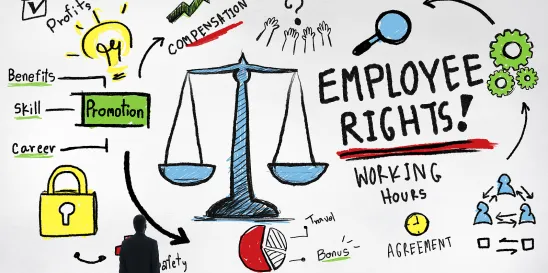- A Texas federal judge delayed the effective date of the National Labor Relations Board’s new joint-employer rule from February 26 to March 11, 2024. U.S. Chamber of Commerce v. NLRB, No. 6:23-cv-00553 (E.D. Tex. Feb. 22, 2024). The judge issued his order following oral arguments between the Board and a coalition of business groups led by the U.S. Chamber of Commerce. The business groups argued the rule is unlawfully overbroad and would negatively affect franchisors, contractors, and staffing agencies. The rule would broaden the Board’s prior standard by finding joint-employer status where an entity possesses the authority to control at least one of seven enumerated essential terms and conditions of employment, regardless of whether the entity actually exercises that control. The judge’s two-week stay marks the second delay of the rule’s effective date, which was originally scheduled to for December 2023.
- Strike activity in 2023 was the highest in a single year in 20 years, according to a Bloomberg Law report. A record 347 work stoppages were reported in 2023, marking the first time since at least 1990 that annual strikes increased three years in a row. May and September saw the most strike activity. Most strikes in 2023 occurred while unions were negotiating successor contracts rather than first contracts. The report also confirmed that the Service Employees International Union and the International Brotherhood of Teamsters called the most strikes, initiating 99 and 43, respectively. The report further highlighted the trend of shorter strikes, with two-thirds resolving within seven days of their start date.
- The U.S. Court of Appeals for the Fifth Circuit is reviewing the Board’s 2022 ruling that expanded its remedial authority to make employees whole for “foreseeable” damages. Thryv, Inc. v. NLRB, No. 23-60132 (5th Cir. Mar. 20, 2023). The Fifth Circuit heard oral argument in the case on Feb. 6, 2024. The Board’s 2022 ruling created a new standard as to the types of “damages” that can form the basis of an appropriate “make whole” remedy. The Board found the elements of such relief include, but are not limited to, “out-of-pocket medical expenses, credit card debt, or other costs simply in order to make ends meet.” The company requested review of the Board’s decision to the Fifth Circuit, arguing the Board overstepped its authority under the National Labor Relations Act, adding that the Board ruled against it simply to use the case as a “vehicle to rewrite the remedies available” to it.
- Board General Counsel (GC) Jennifer Abruzzo reaffirmed her plan to aggressively target non-compete agreements in an interview with Bloomberg Law. GC Abruzzo first announced this initiative in a May 2023 memorandum, arguing that overbroad provisions in non-competes interfere with employees’ Section 7 rights under the Act and can be used only to restrict managerial or ownership interests in a competing business or where there is a true independent contractor relationship. The GC also argues employers can protect their legitimate business interests, such as proprietary information or trade secrets, through narrowly tailored workplace agreements. Along with this initiative, the GC has stated she will seek Board rulings limiting training repayment agreements, banning mandatory “captive audience” meetings, and authorizing monetary damages for an employer’s refuses to bargain. While the GC does not have the authority to change Board law, she is the prosecutorial arm of the Board and therefore can bring cases before the agency to make new case law.
- A Board regional director issued a complaint against The Washington Post for its refusal to bargain over a return-to-office policy. The Washington Post, 05-CA-299414 (Feb. 2, 2024). The complaint alleges the Post rescinded its existing return-to-office policy exceptions for several of its employees without negotiating with the Washington-Baltimore News Guild, which represents the employees. The complaint comes after Post journalists and staffers went on strike in December for the first time in 50 years. Shortly after the strike, the union reached a tentative agreement with the newspaper. The tentative agreement provides additional wage increases over the three-year contract and requires 60 days’ notice before changing the hybrid work schedule.
Top Five Labor Law Developments for February 2024
Saturday, March 2, 2024
Current Public Notices
Published: 16 September, 2025
Published: 15 September, 2025
Published: 15 September, 2025
Published: 9 September, 2025
Published: 9 September, 2025
Published: 8 September, 2025
Published: 4 September, 2025
Published: 28 August, 2025
Published: 25 August, 2025
Published: 20 August, 2025
Published: 18 August, 2025
Published: 11 August, 2025
Published: 8 August, 2025
Published: 26 June, 2025







 />i
/>i

